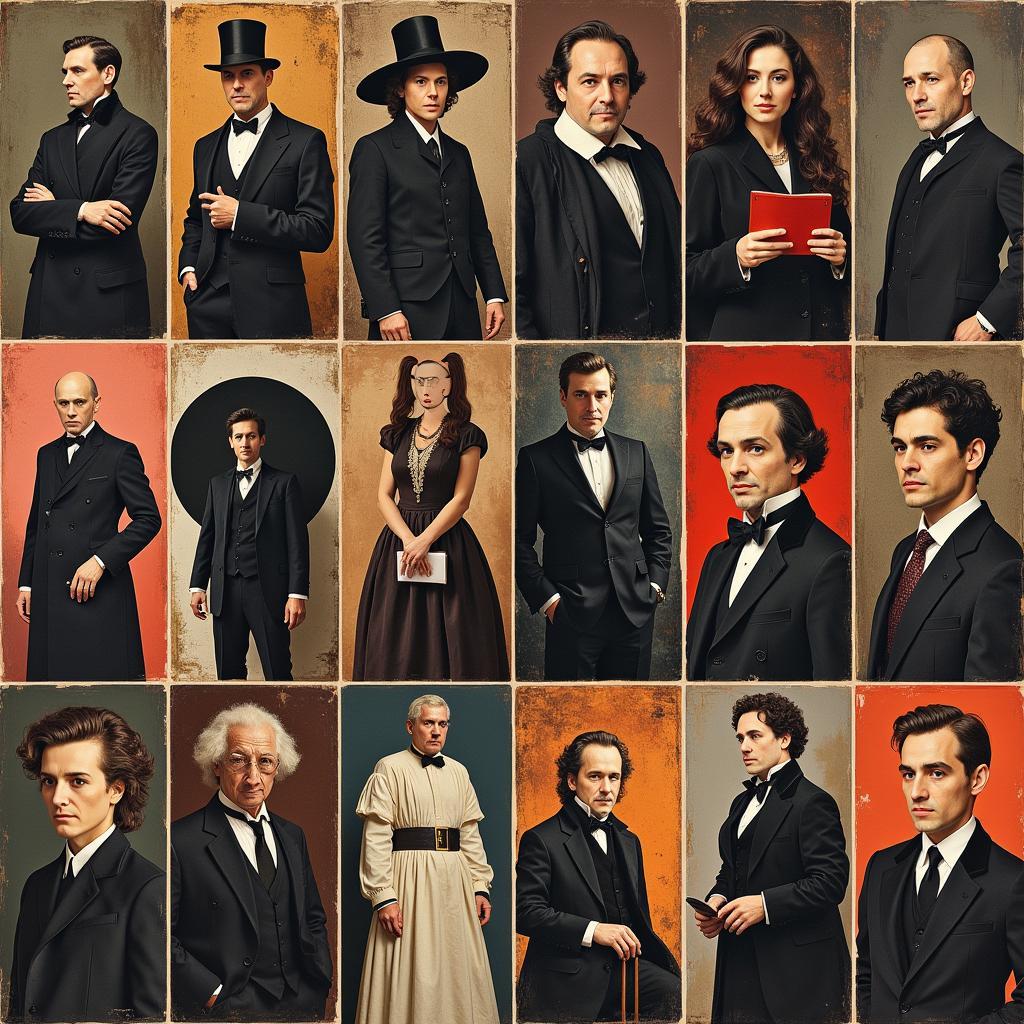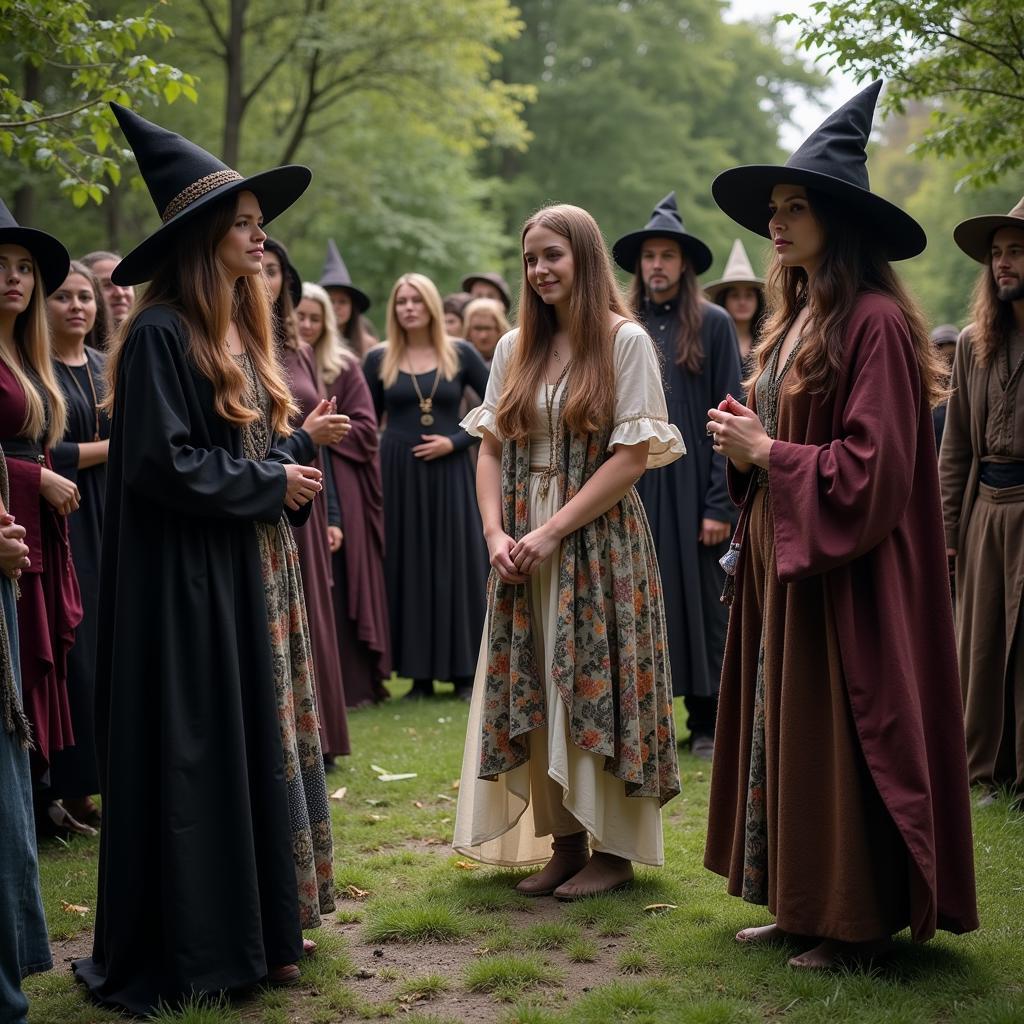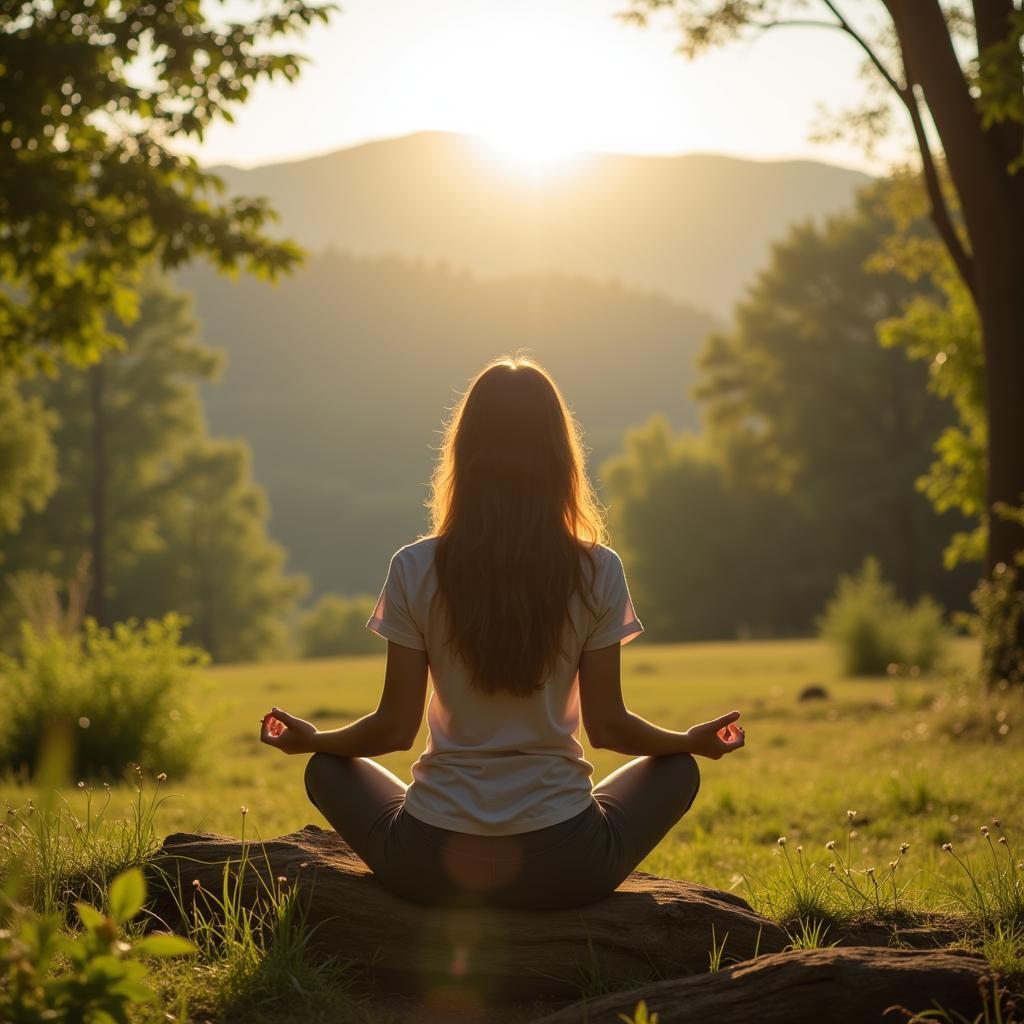The phrase “The Secret Society Of Witches” evokes images of clandestine meetings, bubbling cauldrons, and whispered spells. While popular culture has often portrayed witches and their societies in a mystical or even sinister light, the reality is far more nuanced and, frankly, much more human. This exploration delves into the historical and contemporary understanding of witches, examining the motivations behind secret societies and challenging common misconceptions.
The Allure and Misconceptions of “Secret Societies”
Throughout history, the concept of secret societies has held a unique allure. The idea of possessing knowledge or wielding power unknown to the general public is a powerful motivator. For some, the appeal lies in the sense of belonging and shared purpose that a secretive group offers.
 Secret Society Myths and Realities
Secret Society Myths and Realities
However, this fascination often overshadows the more practical reasons behind secrecy. Many groups throughout history, from religious orders to guilds and even early scientific communities, have utilized secrecy to protect their knowledge, rituals, or even members from persecution or outside interference.
The Historical Witch: Persecution and the Need for Secrecy
Understanding the historical context surrounding witches is crucial to understanding the concept of “secret societies.” The image of the witch has undergone significant transformation over the centuries. In early pagan cultures, those who worked with herbs, practiced healing, or held knowledge of natural cycles were often revered figures. However, with the rise of Christianity and later during the period known as the “Burning Times,” witchcraft became demonized, associated with heresy and evil.
This persecution led to a climate of fear and mistrust. Those who practiced folk magic, healing, or midwifery – often women – were targeted, accused of consorting with the devil. In this atmosphere of fear, secrecy became a means of survival. Gathering in secret allowed these individuals to practice their beliefs, share knowledge, and find solace and support within their communities.
Modern Witchcraft: Community and Shared Identity
 Modern Witchcraft: Community and Identity
Modern Witchcraft: Community and Identity
Today, the practice of witchcraft, often referred to as Wicca or Paganism, has experienced a resurgence. Far from being secret, many practitioners are open about their beliefs and practices. The internet has provided a platform for connection, information sharing, and community building among those who identify as witches. Organizations like The Pagan Federation and The Witches & Pagans Network offer support, resources, and advocacy for those who practice witchcraft openly.
However, the concept of “secret societies” within modern witchcraft persists, though often not in the way popular culture might imagine. Some groups or covens may choose to keep their membership and practices private for personal or spiritual reasons. This is often rooted in a desire to create a safe and sacred space for spiritual exploration and growth, rather than any malicious intent.
The Secret Society Within: Finding Magic in Everyday Life
Perhaps the most enduring legacy of “the secret society of witches” lies not in literal secret organizations, but in the power of personal transformation and self-discovery. The act of seeking knowledge, connecting with nature, and embracing one’s intuition can be seen as a form of “inner magic.” This personal journey, often undertaken quietly and introspectively, can be as transformative and empowering as any secret society initiation.
 Inner Magic and Self-Discovery
Inner Magic and Self-Discovery
The real “secret society of witches” might be less about clandestine gatherings and more about finding the magic within ourselves and the world around us. It’s about embracing compassion, curiosity, and a connection to something larger than ourselves. And that, ultimately, is a secret worth sharing.
Conclusion
The enduring fascination with “the secret society of witches” speaks to humanity’s enduring fascination with the unknown and the allure of hidden knowledge. While history paints a complex and often tragic picture of persecution and secrecy, modern witchcraft offers a different perspective. It reminds us that true power lies not in hiding but in embracing our authentic selves, connecting with others, and finding magic in the everyday.
FAQs about Witches and Secret Societies
1. Do witches really exist today?
Yes, many people today identify as witches or practice witchcraft, often as part of Wicca or other Pagan traditions.
2. Are all witches part of secret societies?
No, the vast majority of witches today are open about their beliefs and practices. Some groups may choose privacy for personal or spiritual reasons, but this is not the norm.
3. What do witches believe?
Witchcraft is a diverse path with various beliefs and practices. Generally, it emphasizes a connection to nature, personal empowerment, and reverence for the divine feminine.
4. Is witchcraft dangerous?
Modern witchcraft is generally focused on healing, self-discovery, and positive transformation. It does not advocate harm to others.
5. How can I learn more about witchcraft?
Reputable books, online resources, and local groups can offer accurate information about witchcraft and its various traditions.
For more resources and information related to building a more peaceful and understanding world, explore our website:
Need support in promoting peace and understanding? Contact us:
Phone: 02043854663
Email: [email protected]
Address: Khu 34, Bắc Giang, 260000, Việt Nam
We are here to help 24/7.